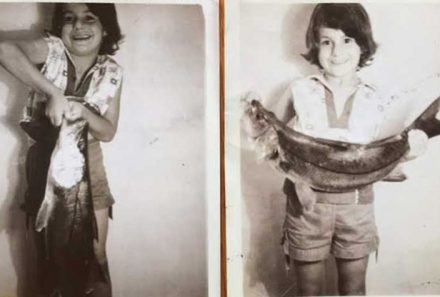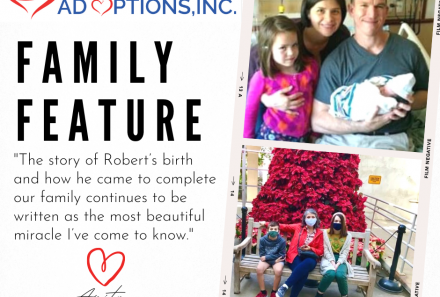Choices and Considerations Surrounding Adoption

Why are we choosing adoption?
This may seem like a really simple question with a simple answer: ‘We want to be parents,’ but there is so much more to consider when choosing adoption.
Many families come to adoption after battling infertility, while others feel drawn to it for more personal reasons. Determining your motivation is key as decision-making may become difficult if the focus is on your needs rather than focusing on the child and what you can provide for them.
What else should we consider when making the decision to adopt?
So, the decision has been made to adopt, but what else do you need to think about? Well, we are here to help you break this down. These key topics tend to be the most important, though not all-encompassing. One of the most important tips we can provide for you as you embark on this adoption journey is to communicate- with your spouse, your support system, your agency providers, and did we say your spouse? Ensuring you are on the same page as well as prepared and approved to accept certain situations is of utmost importance.
What are comfort levels when discussing adoption?
This could mean anything from what you are comfortable with for a budget, what amount of drug exposure you will consider in an expectant birth parent, what race/ethnicities you would be open to, and what type of post-placement communication you would be willing to maintain with the birth parents. This could also include things such as mental health histories in an expectant parent, what medical history you would be willing to accept, or even if you are open to twins. Let’s break these down:
· Adoption Budget
The budget you set for your adoption needs to include things such as agency and legal fees as well as possible living expenses for an expectant parent. You should take into consideration any travel-related costs you may face if the expectant mother you are matched with isn’t in your same state of residence. You should also take into consideration that sometimes; expectant mothers decide not to follow through with an adoption plan and you could risk a financial loss. As you consider what you are comfortable with for a budget, remember there are grants, loans, and fundraisers that could help cover these costs and as well as an adoption tax credit.
· Post Placement Communication
While closed adoption was the norm in the past, it isn’t something you will find often anymore. At a minimum, most expectant mothers will ask for pictures and letters to update them on the well-being of the child. Many also request direct contact which could include visits. Things to consider and inquire about are what the regulations (laws) are in the state you are adopting from. Also, what is in the child’s best interest? There are ways to have openness while still protecting your privacy- for both the birth family and adoptive family.
· Drug Use
This is likely one of the hardest decisions you will make. We often hear “We just want a healthy baby.” Believe me, all of us want the same thing for all of our families as well- and one of the things I remind families of is that just because there may be drug use doesn’t mean the child isn’t healthy. The baby may very likely go through withdrawal, but this does not mean they are unhealthy. We highly suggest speaking with a pediatrician to discuss things such as possible long-term effects and nature vs. nurture. We also suggest connecting with other adoptive families to understand how they managed NICU stays, etc. While not every case will be identical, there are similarities that will help educate you to decide as to what you may be prepared to handle.
· Race/Ethnicity
While we respect that adoptive families may be open to parenting a child of any race/ethnicity it doesn’t always mean it is in the child’s best interest. Ask yourself, will the child I am [we are] raising have anyone that looks like them in the community and day-to-day activities they see or participate in? Raising a child of a different race/ethnicity isn’t about you, but rather about the child. Will the child feel like a part of the family or community? We hear things such as “We don’t see color.” but the reality is, in today’s time- you have to not only see color but also recognize that there are differences and be able to provide cultural experiences that include the child’s race/ethnicity.
· Medical/Mental Health History
Situations such as mental health history in an expectant parent or hepatitis C, sickle cell, and HIV are all things you will have to decide on if you are open to considering. Education is key. Understanding the possible risks, available treatments, odds of the child even having any of these things should all be considered.
· The ‘Other/Miscellaneous’ Category
Important considerations that might arise are: would you consider twins, a child born as the result of rape or incest, a situation where the expectant mother is not and/or will not obtain medical care. This may also include whether you are only open to a newborn or maybe an older child, and also your thoughts about adopting a sibling group? Would you consider a born baby situation with minimal information available and a quick decision time, or maybe even a situation where a birth parent has delivered the baby and then leaves the child in a “Safe Place” also known as a Safe Haven with no medical or social history regarding the child’s birth family? There are many ‘other/miscellaneous’ situations that may vary from agency to agency so remember to communicate about these possibilities as well.
What’s It All Mean?
I like to remind families, every child has ‘special needs’ that are individual and special to the child. Some may need more medical care, extra educational help, or just need extra snuggles and cuddles. Every child is unique in their own way and as such has special needs to help them live their life to their fullest potential. Understanding your abilities and resources, along with your limitations will help make these decisions easier as to what your comfort levels are. As a reminder, adopting isn’t just about you becoming a parent but more about the life you can provide for a child. Parenting is hard- no matter how you become a parent, biologically, fostering, adopting, or stepparenting. Tough decisions will be made throughout your parenting journey. Adoption can be a long, emotionally challenging situation. In the end though, it means you are a parent, a family, and all the decisions you had to make are worth it in the end.






